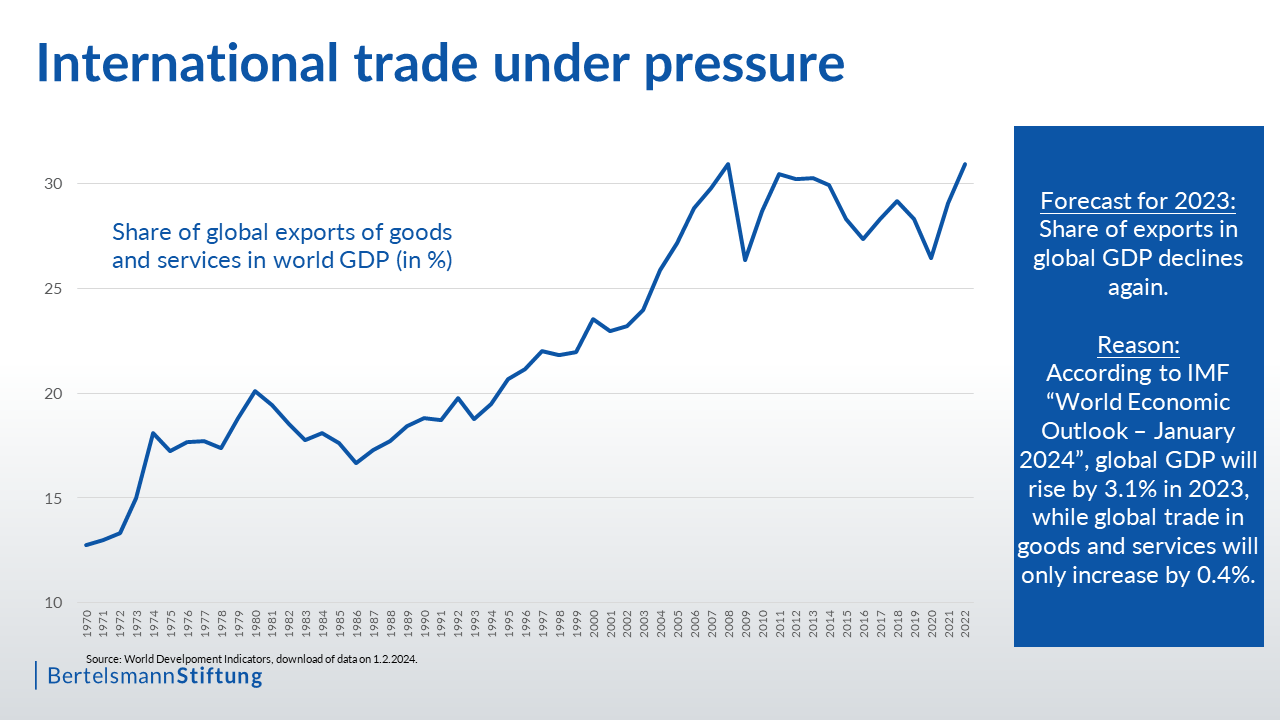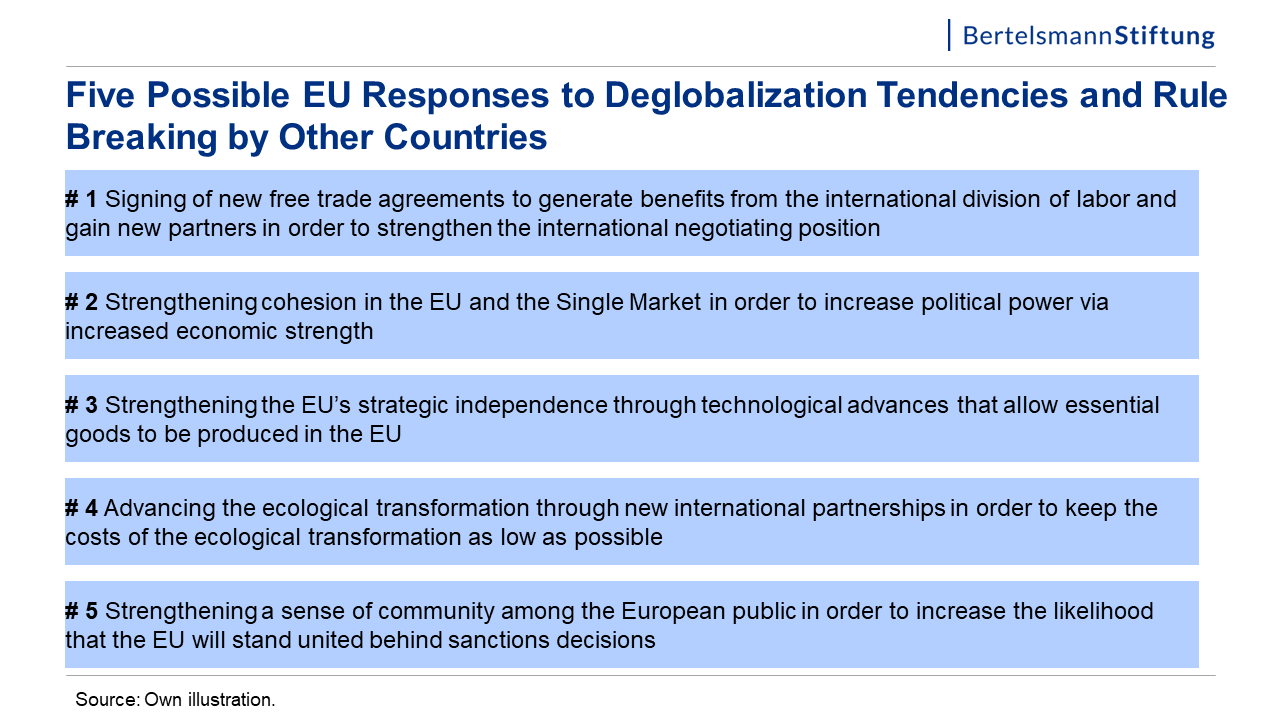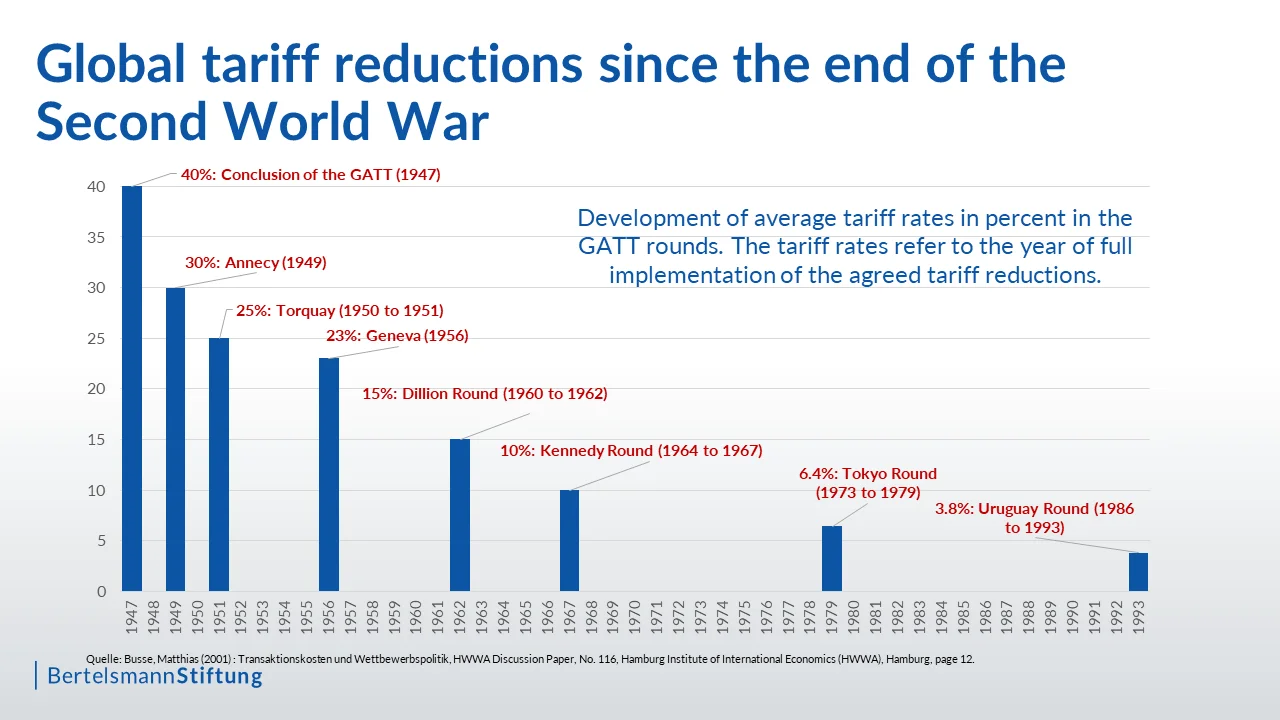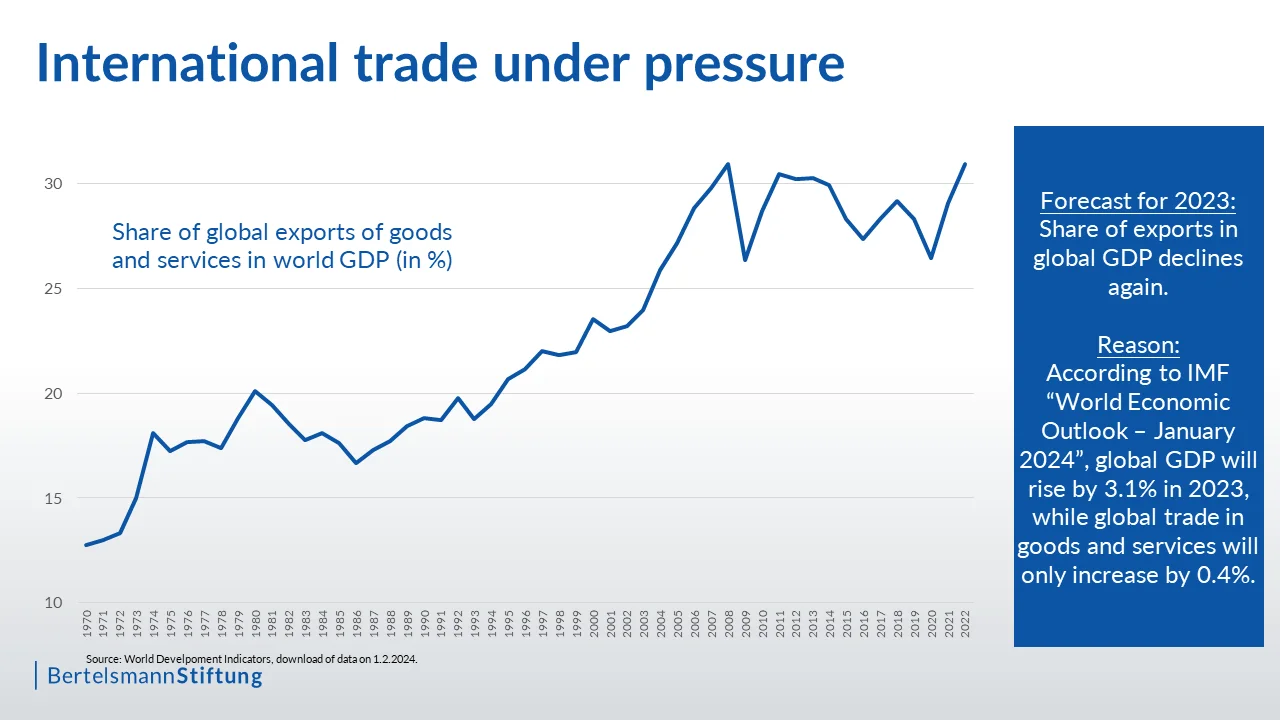Germany on Wednesday said that it was slashing its expectations for gross domestic product growth for 2024 to 0.2%, down from a 1.3% estimate previously.
The country narrowly avoided a recession at the end of 2023 and has faced a series of economic crises.
Germany slashes 2024 growth outlook
Berlin has significantly lowered its 2024 growth forecast for the German economy. Weak global demand, geopolitical unease, and sticky inflation have hampered an anticipated recovery from recession.
The economy has lurched between stagnation and recession in recent quarters, with Germany battered by what Habeck has described as "a perfect storm."
The German Cabinet has approved an economic forecast revising growth down to 0.2% this year — well below a previous forecast of 1.3%.
"We are coming out of the crisis more slowly than hoped," said Economics Minister Robert Habeck, presenting the report.
"The fact that the global economic environment is unstable and global trade growth is historically low is a challenge for an export nation like Germany,"
___________________________________________________________________________________
___________________________________________________________________________________
February 20, 2024 Thieß Petersen
WTO in Crisis: EU Options for Shaping a More Effective Global Trade System
The 13th WTO Ministerial Conference will take place from February 26 to 29, 2024. The topics to be discussed cover a wide range of issues:
- fisheries subsidies,
- a dispute settlement reform,
- customs duties on electronic transmissions,
- agriculture and food security,
- trade-related aspects of intellectual property rights in the context of COVID-19 vaccines,
- e-commerce,
- subsidies for industrial sectors and
- agriculture and more.
The diversity of topics shows the great need for multilateral coordination and agreements. Unfortunately, growing demands on the performance of the WTO are coming up against increasingly limited opportunities for action.
The EU should, therefore, consider its own measures to intensify international cooperation.
The reason is an increasing number of countries are not only aiming to increase the prosperity of their population with their foreign trade policy, but also achieve geopolitical goals with trade policies.
To this end, protectionist measures are being taken to harm other countries – weakening their political power.
Rule-based globalization is increasingly becoming power-based globalization. This is resulting in growing trade disputes, which the WTO is responsible for settling.
However, it has been unable to perform this task for some time now.
For a long time, international trade was dominated by the dismantling of trade barriers and the conclusion of free trade agreements. For example, the average level of global import tariffs fell from 40 percent after the end of the Second World War to less than four percent at the beginning of the 1990s as a result of several GATT rounds.As a result, the share of global exports of goods and services grew significantly faster than global gross domestic product (GDP), an indicator of an increasing international division of labor.
However, following the Lehman Brothers bankruptcy, which led to a severe global economic crisis, tariffs – trade barriers were increasingly used again.
Currently, the international division of labor is increasingly characterized by protectionist measures. In addition to tariffs, more and more economies are using additional trade-restricting instruments, including subsidies for domestic companies, sanctions, and export bans.
The reason is an increasing number of countries are not only aiming to increase the prosperity of their population with their foreign trade policy, but also achieve geopolitical goals with trade policies.
To this end, protectionist measures are being taken to harm other countries – weakening their political power.
Rule-based globalization is increasingly becoming power-based globalization. This is resulting in growing trade disputes, which the WTO is responsible for settling.
However, it has been unable to perform this task for some time now.
___________________________________________________________________________________
Rule-based globalization under pressure
For a long time, international trade was dominated by the dismantling of trade barriers and the conclusion of free trade agreements. For example, the average level of global import tariffs fell from 40 percent after the end of the Second World War to less than four percent at the beginning of the 1990s as a result of several GATT rounds.As a result, the share of global exports of goods and services grew significantly faster than global gross domestic product (GDP), an indicator of an increasing international division of labor.
However, following the Lehman Brothers bankruptcy, which led to a severe global economic crisis, tariffs – trade barriers were increasingly used again.
Currently, the international division of labor is increasingly characterized by protectionist measures. In addition to tariffs, more and more economies are using additional trade-restricting instruments, including subsidies for domestic companies, sanctions, and export bans.
The reason is an increasing number of countries are not only aiming to increase the prosperity of their population with their foreign trade policy, but also achieve geopolitical goals with trade policies.
To this end, protectionist measures are being taken to harm other countries – weakening their political power.
Rule-based globalization is increasingly becoming power-based globalization. This is resulting in growing trade disputes, which the WTO is responsible for settling.
However, it has been unable to perform this task for some time now.










No comments:
Post a Comment